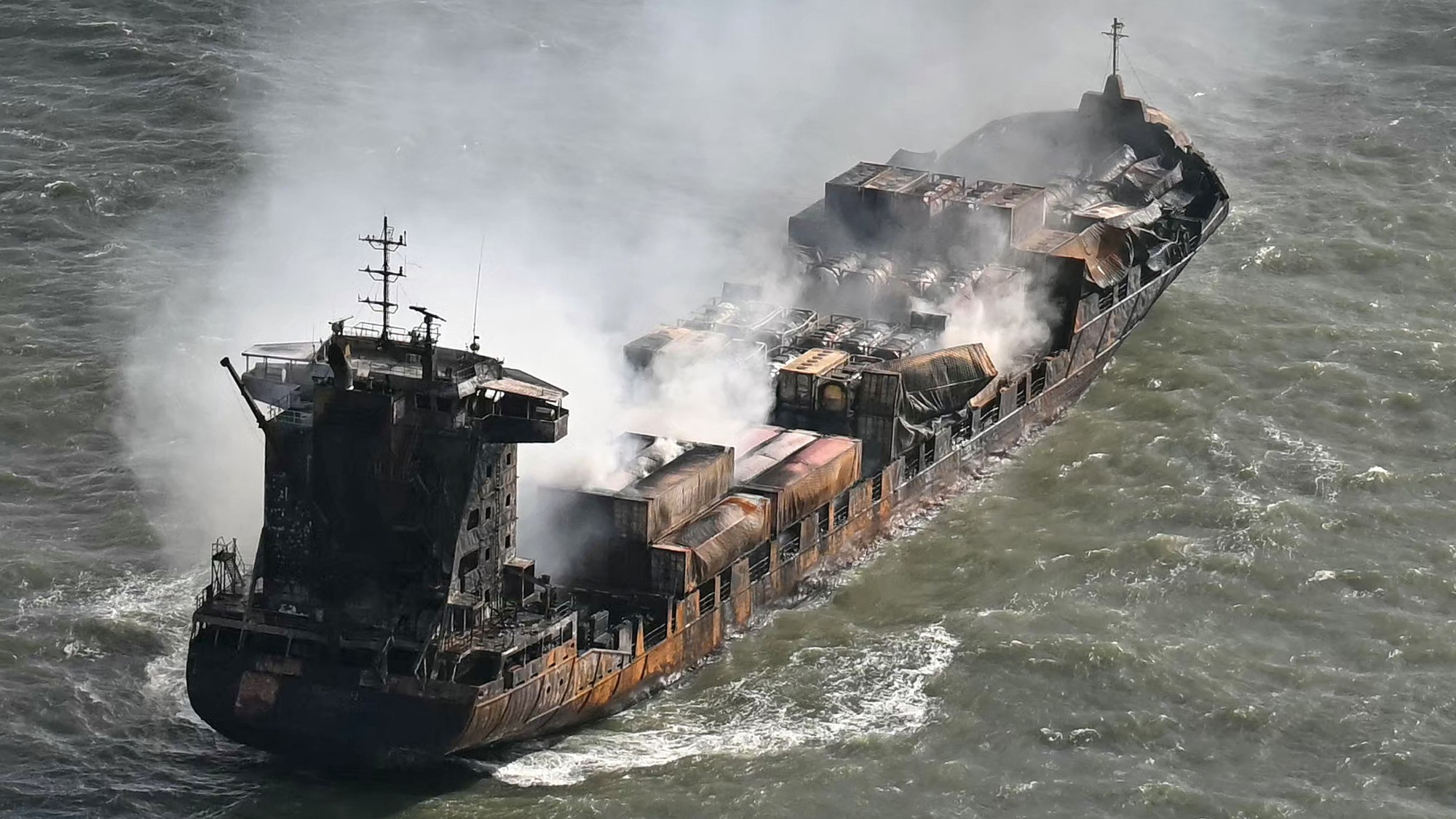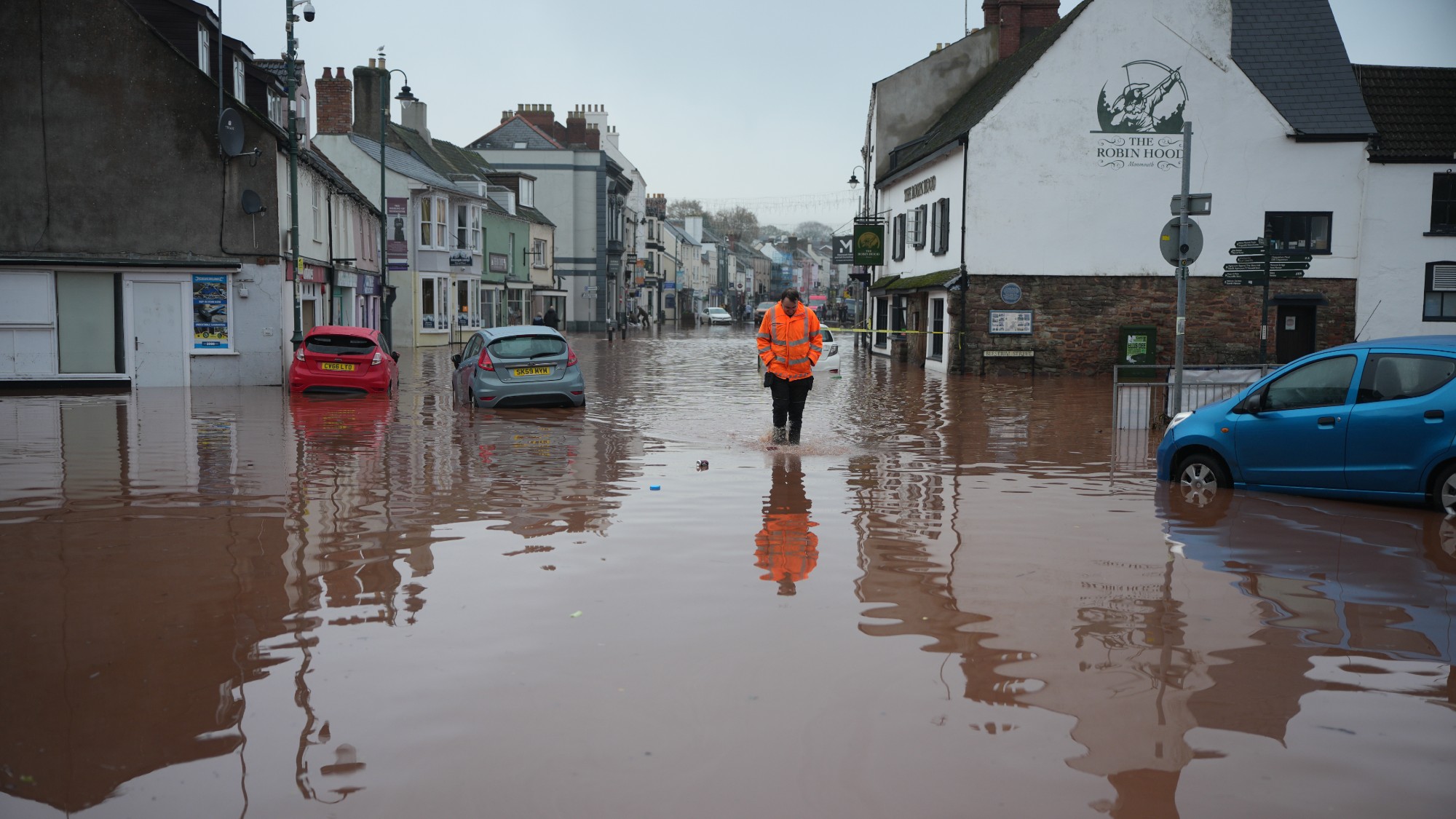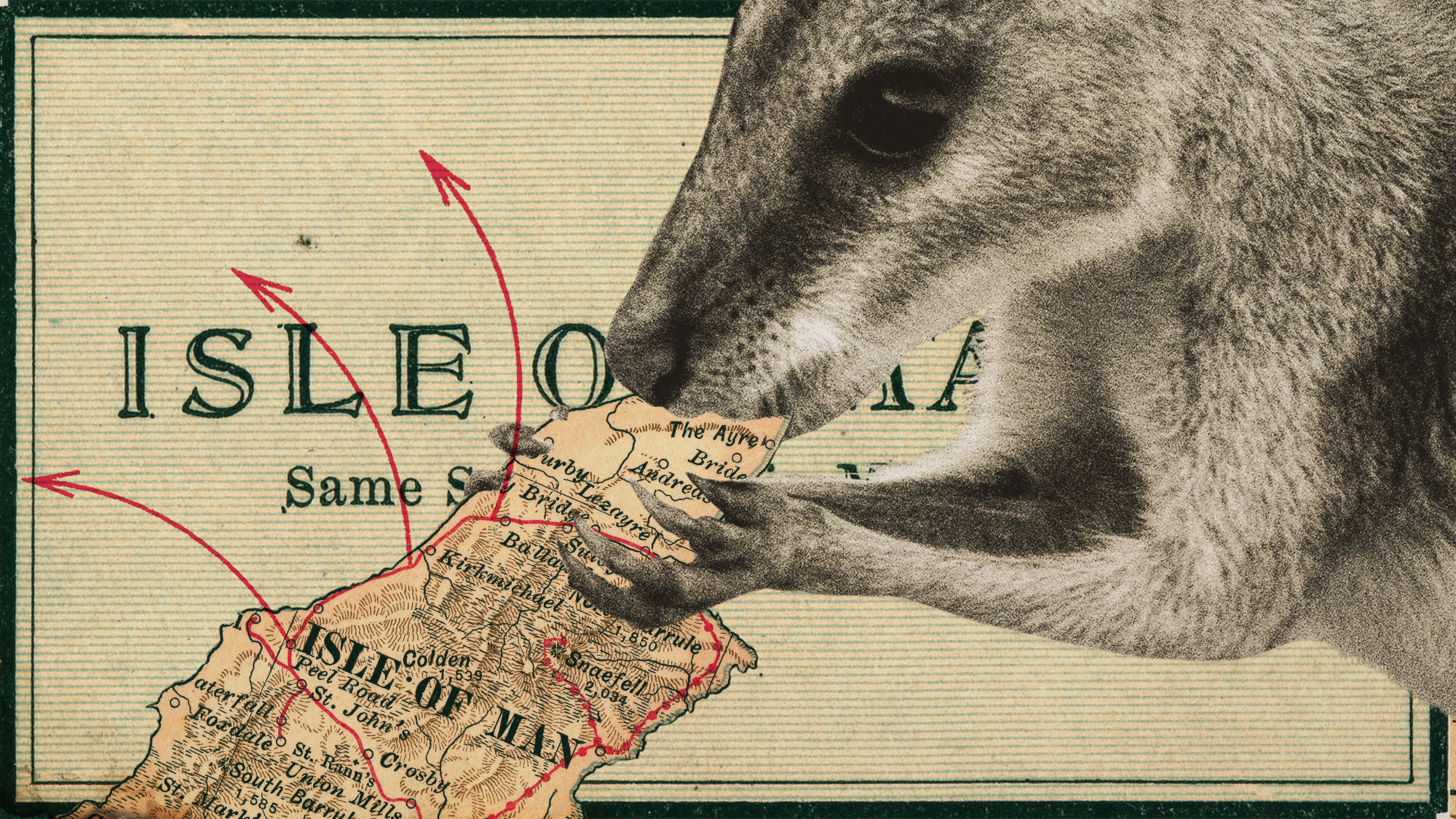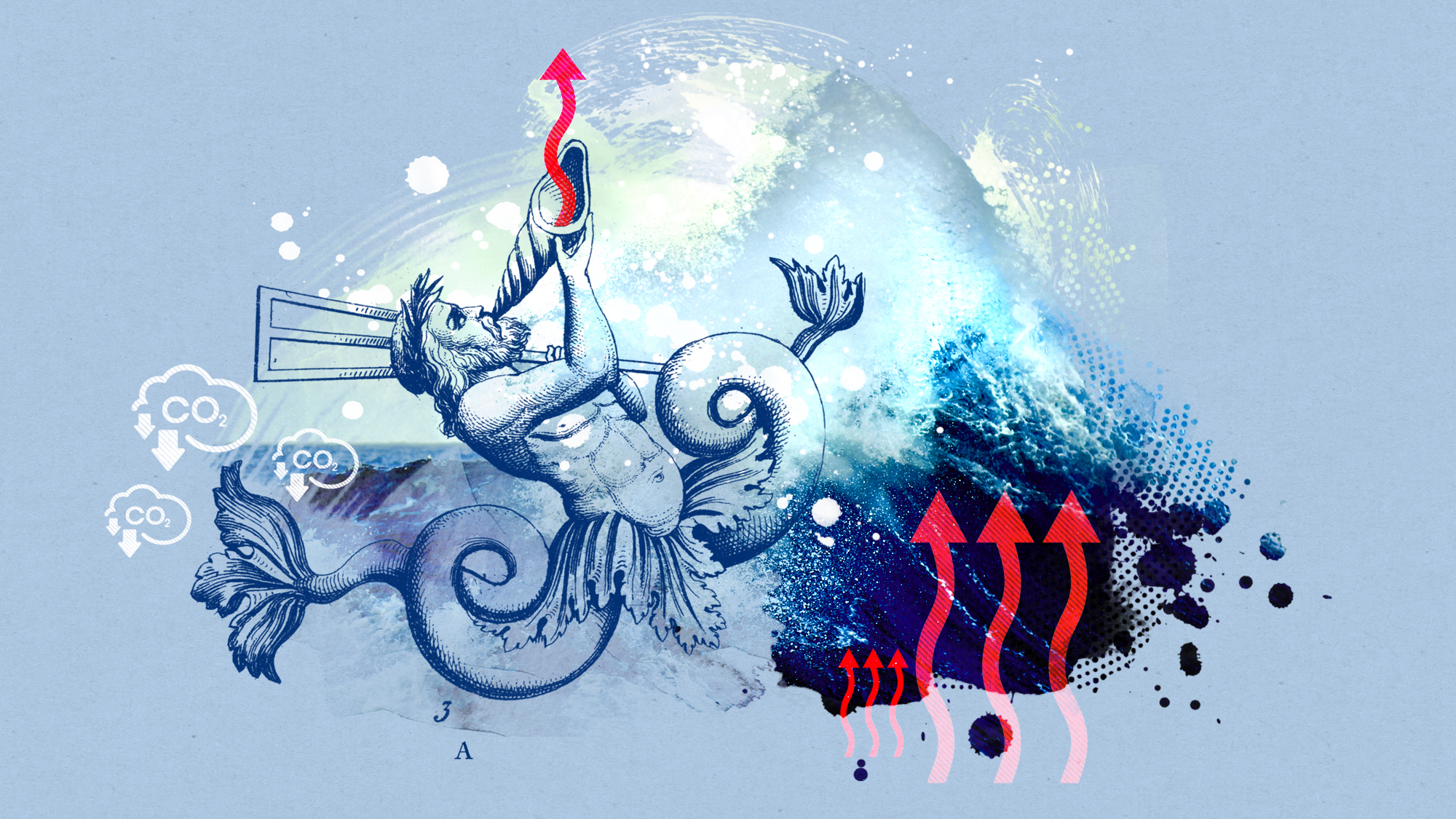Jet fuel risk: what effect will North Sea tanker crash have on environment?
Collision area has massive populations of seabirds, such as puffins and gannets, while porpoises and seals breed nearby

A free daily email with the biggest news stories of the day – and the best features from TheWeek.com
You are now subscribed
Your newsletter sign-up was successful
The East Yorkshire coast is home to a wealth of marine life and seabirds – but yesterday's dramatic collision in the North Sea between an oil tanker and a cargo ship could put that at risk.
The Portuguese-flagged cargo ship, the Solong, was previously thought to have been carrying 15 containers of highly toxic sodium cyanide when it struck the tanker. The US-flagged Stena Immaculate, which was moored 10 miles off the coast, had 220,000 barrels of jet fuel on board, which is now leaking from its ruptured cargo tank into the water. There were widespread fears that a combination of burning jet fuel and toxic chemicals "could cause major environmental damage", said ITV News.
What did the commentators say?
The company that owns the Solong, Ernst Russ, confirmed this afternoon that its ship was not, as first thought, carrying sodium cyanide at the time of the collision. "There are four empty containers that have previously contained the hazardous chemical, and these containers will continue to be monitored," a company spokesperson told the press.
The Week
Escape your echo chamber. Get the facts behind the news, plus analysis from multiple perspectives.

Sign up for The Week's Free Newsletters
From our morning news briefing to a weekly Good News Newsletter, get the best of The Week delivered directly to your inbox.
From our morning news briefing to a weekly Good News Newsletter, get the best of The Week delivered directly to your inbox.
That is "good news for wildlife", said The Times. Sodium cyanide, which is used primarily for metal cleaning and photography, can be "highly toxic". If it gets wet, it releases a "toxic, flammable hydrogen cyanide gas", said ITV News.
The leaking jet fuel is "highly volatile", so "much surface liquid" will evaporate, said Alastair Hay, a professor of environmental toxicology at the University of Leeds. According to the US-based National Oceanic and Atmospheric Administration, "aquatic organisms that come into direct contact" with jet fuel "may be killed" but "small spills in open water" may not actually kill large numbers of fish.
Pollution from the collision, especially if it contains toxic chemicals, could have "devastating consequences", said the New Scientist. Those waters are "home to internationally significant populations of breeding seabirds", such as puffins and gannets, and on the migration routes for wading birds and waterfowl. Harbour porpoises and grey seals also breed nearby. Chemical pollution can "directly impact" those species, and have "long-lasting effects on the marine food webs that support them", said Tom Webb, a biosciences lecturer at the University of Sheffield.
Conservation charities are "bracing for what could be nasty", said Sky News, but the extent of the environmental impact will depend on weather and sea conditions: "wind, waves and currents" all affect how spills spread. It also matters how quickly any spills can be cleaned up. "Usually the slower the response, the worse the impact." But, with fires still burning, spewing "clouds of filthy black smoke" into the air, authorities have so far been unable to get close enough to assess the damage.
A free daily email with the biggest news stories of the day – and the best features from TheWeek.com
What's potentially worse is the oil both ships were carrying to power their journeys. That's a "dirtier, heavier kind of oil", probably marine gas oil or heavy fuel oil – "horrible stuff". "Cheap, thick and tar-like, it can smother animals and is extremely difficult to clean up. Let's hope this isn't swimming around the North Sea already."
What next?
The coastguard has started estimating the "likely counter-pollution response", said Sky News. That might involve "numerous public bodies", including the Department for Environment, the Environment Agency, and the Maritime and Coastguard Agency.
The Solong has drifted south and could sink within hours, said transport minister Mike Kane. He told MPs that tugboats were in the area to "ensure the Solong remains away from the coast".
If there is any chemical spill, the clean-up will require careful precautions, said Seyedvahid Vakili, a maritime expert at the University of Southampton. "Given the chemical's high toxicity, specialised hazardous material teams are needed for clean-up operations," he told The Telegraph.
In the meantime, the leaking oil and fuel could already be leaving a "toxic legacy" for "ocean wildlife", said Hugo Tagholm, executive director of sea-protection charity Oceana UK.
Harriet Marsden is a senior staff writer and podcast panellist for The Week, covering world news and writing the weekly Global Digest newsletter. Before joining the site in 2023, she was a freelance journalist for seven years, working for The Guardian, The Times and The Independent among others, and regularly appearing on radio shows. In 2021, she was awarded the “journalist-at-large” fellowship by the Local Trust charity, and spent a year travelling independently to some of England’s most deprived areas to write about community activism. She has a master’s in international journalism from City University, and has also worked in Bolivia, Colombia and Spain.
-
 Nordic combined: the Winter Olympics sport that bars women
Nordic combined: the Winter Olympics sport that bars womenIn The Spotlight Female athletes excluded from participation in demanding double-discipline events at Milano-Cortina
-
 Samurai: a ‘blockbuster’ display of Japanese heritage
Samurai: a ‘blockbuster’ display of Japanese heritageThe Week Recommends British Museum show offers a ‘scintillating journey’ through ‘a world of gore, power and artistic beauty’
-
 BMW iX3: a ‘revolution’ for the German car brand
BMW iX3: a ‘revolution’ for the German car brandThe Week Recommends The electric SUV promises a ‘great balance between ride comfort and driving fun’
-
 The environmental cost of GLP-1s
The environmental cost of GLP-1sThe explainer Producing the drugs is a dirty process
-
 Climate change could lead to a reptile ‘sexpocalypse’
Climate change could lead to a reptile ‘sexpocalypse’Under the radar The gender gap has hit the animal kingdom
-
 Why scientists want to create self-fertilizing crops
Why scientists want to create self-fertilizing cropsUnder the radar Nutrients without the negatives
-
 How drones detected a deadly threat to Arctic whales
How drones detected a deadly threat to Arctic whalesUnder the radar Monitoring the sea in the air
-
 ‘Jumping genes’: how polar bears are rewiring their DNA to survive the warming Arctic
‘Jumping genes’: how polar bears are rewiring their DNA to survive the warming ArcticUnder the radar The species is adapting to warmer temperatures
-
 How will climate change affect the UK?
How will climate change affect the UK?The Explainer Met Office projections show the UK getting substantially warmer and wetter – with more extreme weather events
-
 The UK’s surprising ‘wallaby boom’
The UK’s surprising ‘wallaby boom’Under the Radar The Australian marsupial has ‘colonised’ the Isle of Man and is now making regular appearances on the UK mainland
-
 The Southern Ocean is holding in a ‘burp’
The Southern Ocean is holding in a ‘burp’Under the radar The heat from the past can affect the future